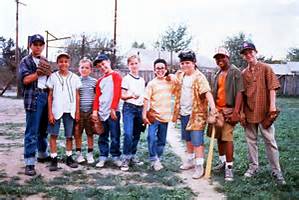
This past Sunday, my church celebrated Grandparents Day. Grandparents Day took on new meaning for me this year. With so many children today being raised by their Grandparents, I was forced to alter my perspective on this all-important day.
I can’t help but wonder if Grandparents Day has become the new Mothers and Fathers Day. Mothers Day and Fathers Day will always be important. However, many children do not know their father or mother or don’t have good relations with their father or mother if they do.
If you are a God-honoring, Christ-centered family making disciples of Christ out of your children, Praise God! You are following the instructions of Christ. Unfortunately, it seems you have become the exception rather than the rule.
I have ministered to children and youth for many years and am used to seeing students come from single-parent homes. Unfortunately, the trend has become worse over the years and I am all too often now seeing students come from no-parent homes.
Grandparents are the backbone of our society and our churches. We honored our Grandparents on Sunday by giving them a hand-crafted gift and by thanking them for their service.
Proverbs 17:6 says, “Children’s children (Grandchildren) are a crown to the aged, and parents are the pride of their children.”
Many parents today think that children are a nuisance and look for ways to dispose of their responsibility. However, Scripture teaches that children are a reward from God and happy is the man whose quiver is full of them (Psalm 127:3, 5).
Church, we need to take care of the widow (many are grandparents) and the orphan (many are grandchildren) and they are supposed to be taking care of each other. Here is a verse you don’t hear much anymore: “But if a widow has children or grandchildren, let them first learn to show godliness to their own household and to make some return to their parents, for this is pleasing in the sight of God” (1 Timothy 5:4).
One day, we will look up and our Grandparents won’t be there. Mine have already passed. But while they are here and are steadfastly serving the Lord by taking care of their own, let’s honor them. They may be the only mother or father their grandchildren have ever known.
“But the steadfast love of the Lord is from everlasting to everlasting on those who fear him, and his righteousness to children’s children (Psalm 103:17).”
“One generation shall commend your works to another, and shall declare your mighty acts” (Psalm 145:4).



